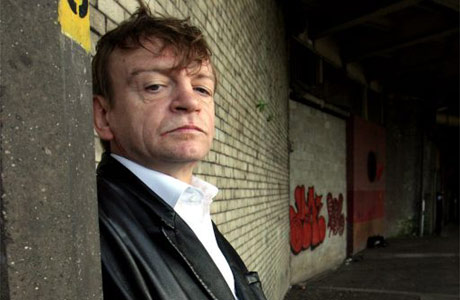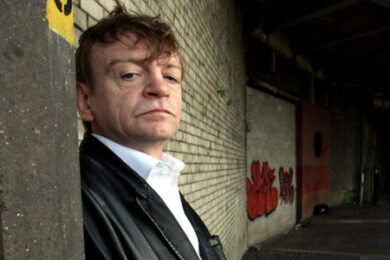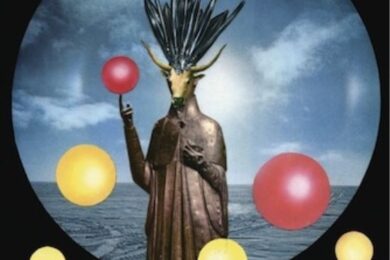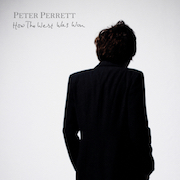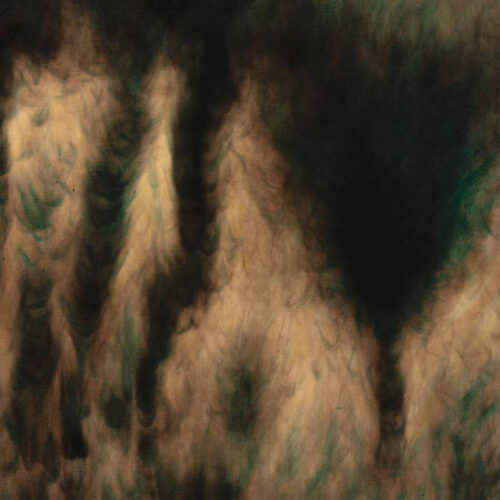Renegade: The Lives And Tales Of Mark E. Smith
Mark E. Smith with Austen Collings
Penguin/Viking
By John Doran
As a consumer you always receive Mark E. Smith through a filter. Sometimes it is a filter of his own design " psychic precognition, jumbled thoughts, paranoia and raving poetry obfuscated by the slur of the daytime drinker. And if not this self-created shield, then it’s via the never-ending stream of music journalists who (probably quite rightly) see an interview with him as being an essential part of their career. Even previous books have served to muddy the waters. It is true that Mick Middles penned the semi-autobiographical tome The Fall with his nibs, but this was more inscrutable than the lyrics from Grotesque " bizarrely, by the time you’ve turned the last page you realise you know more about Smith’s mam (and Middles) than you do about the subject. When I interviewed Smith two years ago in the Malmaison Hotel under the shadow of Manchester’s Piccadilly Station he sarcastically congratulated me on finishing it: “You have my commiserations. I couldn’t get past page 100. It’s not about me is it? It’s about Mick. That’s typical of someone from Stockport.” Then he cackled profusely.
The thing is, the real story has always been there for those willing to look for it, by rummaging through old and yellowing cuttings from the NME, reading lyrics that work like cryptic crossword clues (“To Nk Roachment: Yarbles”: Encroachment " bollocks to that; Hex Enduction Hour a sixty minute long album designed as a spell to end a period of bad luck), the fan site that all others should be judged against, the great sleeve notes by Daryl Easlea that came as part of the Sanctuary reissues. It is ironic that in this respect Smith is like his old sparring partner Morrissey: he tells you nothing but shows you everything. You just have to put a bit of effort in yourself.
That’s not to say that Renegade tells you all you want to know about Smith " just what he thinks is right that you know about him. Celebrity culture and gossip is just one of approximately 15,673 subjects that he is scathing about in this hilarious and bracing read. He lays the blame squarely at the door of three people: David Frost, Lloyd Grossman and Madonna. George Best, however, gets a free pass. He is one of the members of the long and hard to fathom list of people Smith likes or respects, alongside Dr Carl from Neighbours, Pete Waterman, Sam Fox, The Chuckle Brothers, and Louise Redknapp. He is enjoyably contrarian to a fault, even going as far as telling us how The Glitter Band were more influential than the Sex Pistols.
If the book has a fault (and it’s debatable that it does) it is that Smith is predictably bitter about the ex-members of his group. The book opens with Ben Pritchard, Steve Trafford and Spencer Birtwistle abandoning Smith and “The Wife” Elena in the Phoenix desert, and even with his spin on events, you come away feeling pleased you’re not in his band. (Well, not yet anyway " at fifty ex-members and constantly rising, if you plot a graph forward into the future by 2038 everyone still alive will have been in The Fall.) The antipathy he feels for these people makes for uncomfortable reading but even then he manages to temper this with withering wit from time to time: “They came. They saw. They fucked off.” The comparison of leaving his band to developing post-traumatic stress disorder is particularly good, Smith saying the musicians act as if “they’ve been to Vietnam or had a particularly fraught space excursion”.
This said, Renegade is a superb autobiography, probably one of the funniest books written about music. Despite the self-aggrandising and incomplete nature of Smith’s tale, it makes for a genuinely brilliant snapshot of one of the last English eccentrics in public life. It starts with the first of many hyper-real anecdotes that presents Smith’s gift for finding the arcane, the mystical, the lurid and the terrifying in everyday life. He talks about sitting with Stan “the pigeon guy” in the back garden next door to his childhood home in Prestwich, Greater Manchester. Stan, a teddy boy, employed carrier pigeons to send romantic billet-doux to his girlfriends who lived in Blackpool. If he was feeling particularly amorous he would despatch four birds so at least two would get through: “The other two would have been shot down by air rifle.”
The clues you might try to use to decipher Smith’s lyrics are few and far between, but casually strewn around. The ’Psycho Mafia’ was a “melting pot” of a teenage gang that he was part of; ’Repetition’ was actually influenced by the inmates at the local psychiatric institution; ’Fiery Jack’ is about the heavy drinkers of Manchester town: “Hard livers with hard livers. Faces like unmade beds.”
His disdain for people who resort to cliché or don’t or won’t think for themselves seethes off the pages. For example, it’s instructive after years of hearing people like Paul Morley and the late Anthony Wilson mythologize the Sex Pistols gig at the Lesser Free Trade Hall in Manchester to hear Smith’s take on it: “I thought, my lot are not as bad as that. We’re better. We just need a drummer.” And with that it was on.
The best bits are (presumably) diary extracts, scraps of lyrics, disjointed notes from crumpled bits of paper, all typed out into a stream of consciousness style narrative that comes across like a cross between TS Elliot, James Joyce, Bernard Manning and Jeffrey Barnard: “I hope to be an afternoon amnesiac . . . The dead remain piled: their mouths agape . . . The hanging room in The Ostrich. Don’t go in there. There’s a reason why it’s always empty. No one goes in there. Well, only those that don’t know . . .”
And there’s even the tongue in cheek exclusive that no one was expecting: “If anyone says to me that I’ve got a problem with the drink, I tell them I do have a problem " like where to get it after eleven o’clock. I’ve stopped drinking anyway " stopped half an hour ago.”
This is genuinely one of those rare rock autobiographies that will cause people who care nothing for the music at all and die-hard fans alike to revel in its pomposity-bursting, hilarious, grimily poetic brilliance.
Mark E Smith: "I’ve seen too many groups go down in the name of democracy"


